Meet Æquō, the Indian design gallery presenting the antiquities of the future
Founded by Tarini Jindal Handa, Æquō offers an insight into the multiple personalities of Indian craft
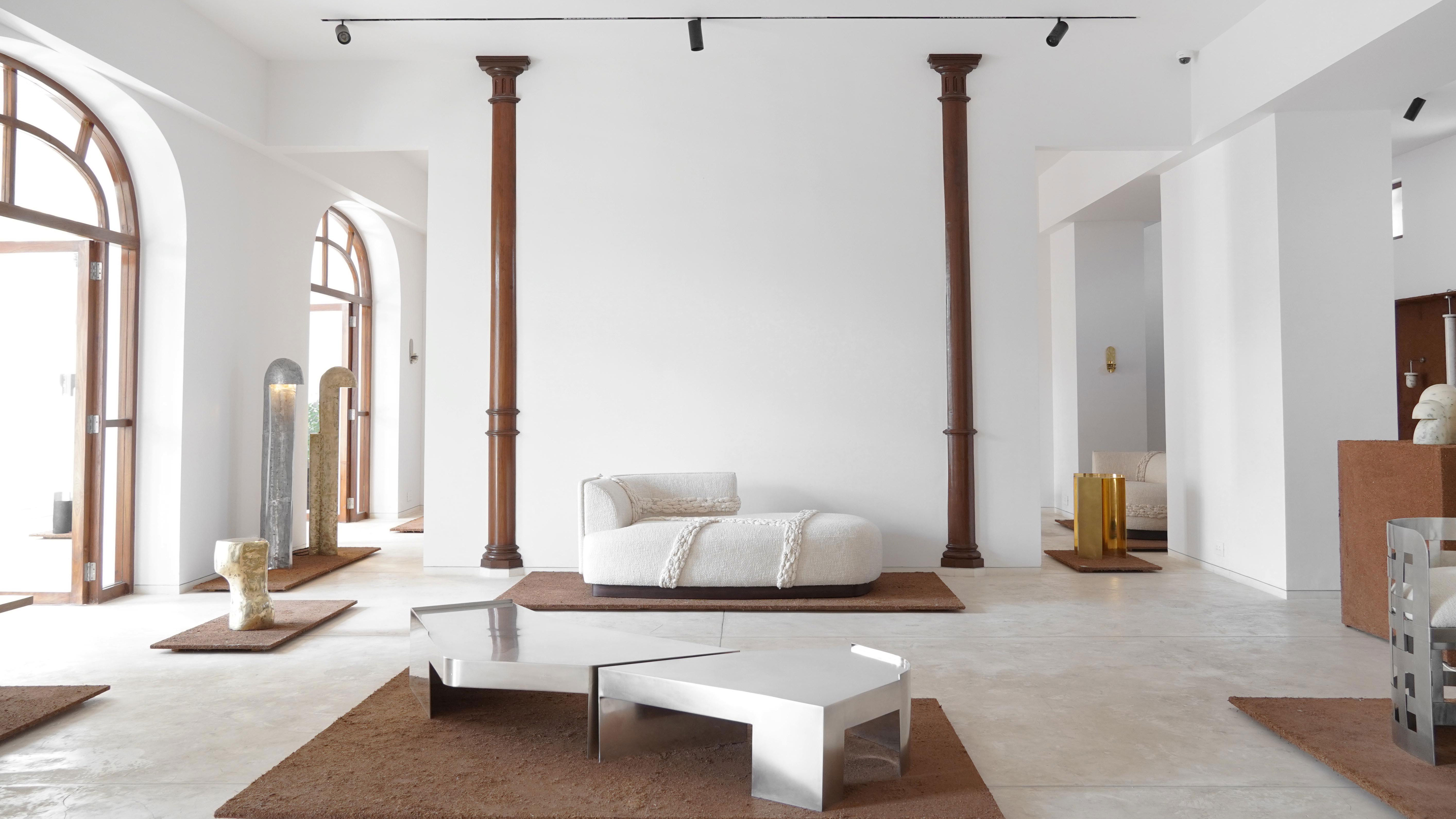
Æquō is a collectible design platform, with artisanal collaborations at its core, founded by Indian creative and entrepreneur Tarini Jindal Handa. ‘I come from a family of art patrons,’ she says. ‘My grandmother founded the Kanoria Centre for Arts, an artist residency in Ahmedabad, and my mum founded the magazine Art India. Growing up in Mumbai, we were always surrounded by artists and interesting people from the art world. I actually studied fashion in London, but like a lot of people, my taste evolved. My education in design and architecture is not formal but has come from the creative people I surrounded myself with. My grandmother taught me to do that.’
This special context draws Jindal Handa to focus on cultural preservation and innovation within the design and artisan spheres. Inviting designers from all over the world to travel and work in India, Jindal not only shows a deep love for her country, but also helps creatives to envision projects with ancient and traditional techniques - from embroidery, handloom textiles, carpentry, papier-mâché and silverware. ‘In an ongoing commitment to the progress of India’s social and cultural legacies, I see Æquō as an experimental project that transcends borders and equalises its participants,’ she adds.
Æquō: celebrating Indian craft
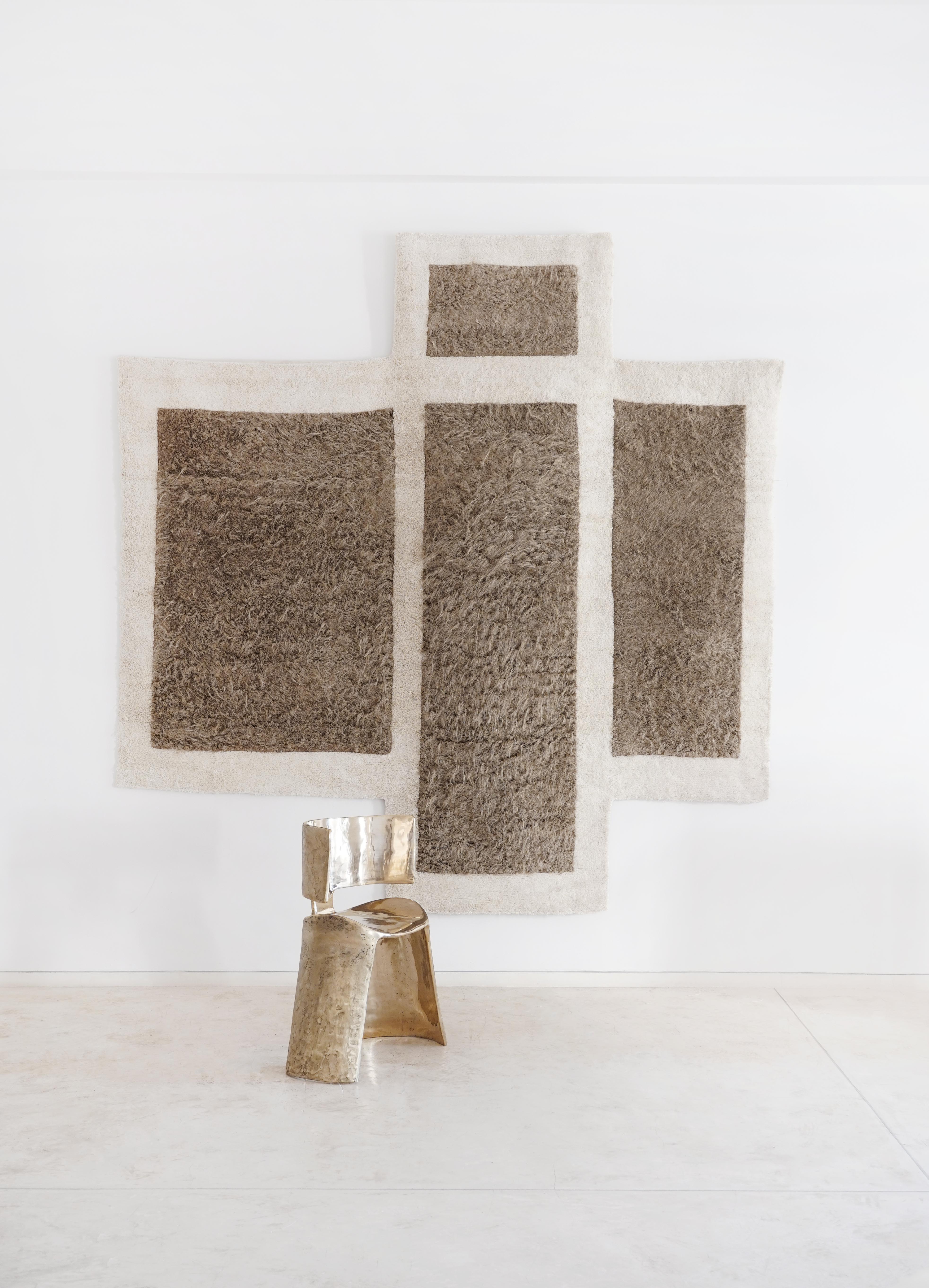
The ‘Raw’ exhibition at Æquō gallery featuring designs by Florence Louisy, crafted by Indian artisans
Based in the district of Colaba (Mumbai’s historical centre), the gallery proposes an equal dialogue between makers, designers and materials in the creation of refined furniture and interior objects. ‘Our mission is to reshape the relationship between them, to reveal their value and potential. We thoughtfully develop furniture and interior objects that emphasise this intersection. By inviting global minds to work here locally, we adopt and create new lenses and unique languages to revisit Indian heritage,’ comments Jindal Handa. This way, international contemporary designers can encounter India’s diverse and profound techniques through the gallery’s extensive network of artisans.
‘Æquō is creating the market for collectible design in my country, but we are also creating an entirely new market globally for fine Indian artisan techniques. Ultimately, I want Indian craftsmanship to receive the respect it deserves internationally. We’re going to make blue-chip names of previously unknown master craftsmen. I want people to know about Jeeveram the carpenter from Alibag, about the amazing stonework of Frozen Music in Jaipur or about the bidri [a silver inlay technique] of Mohammad Abdul Rauf,’ explains Jindal Handa.
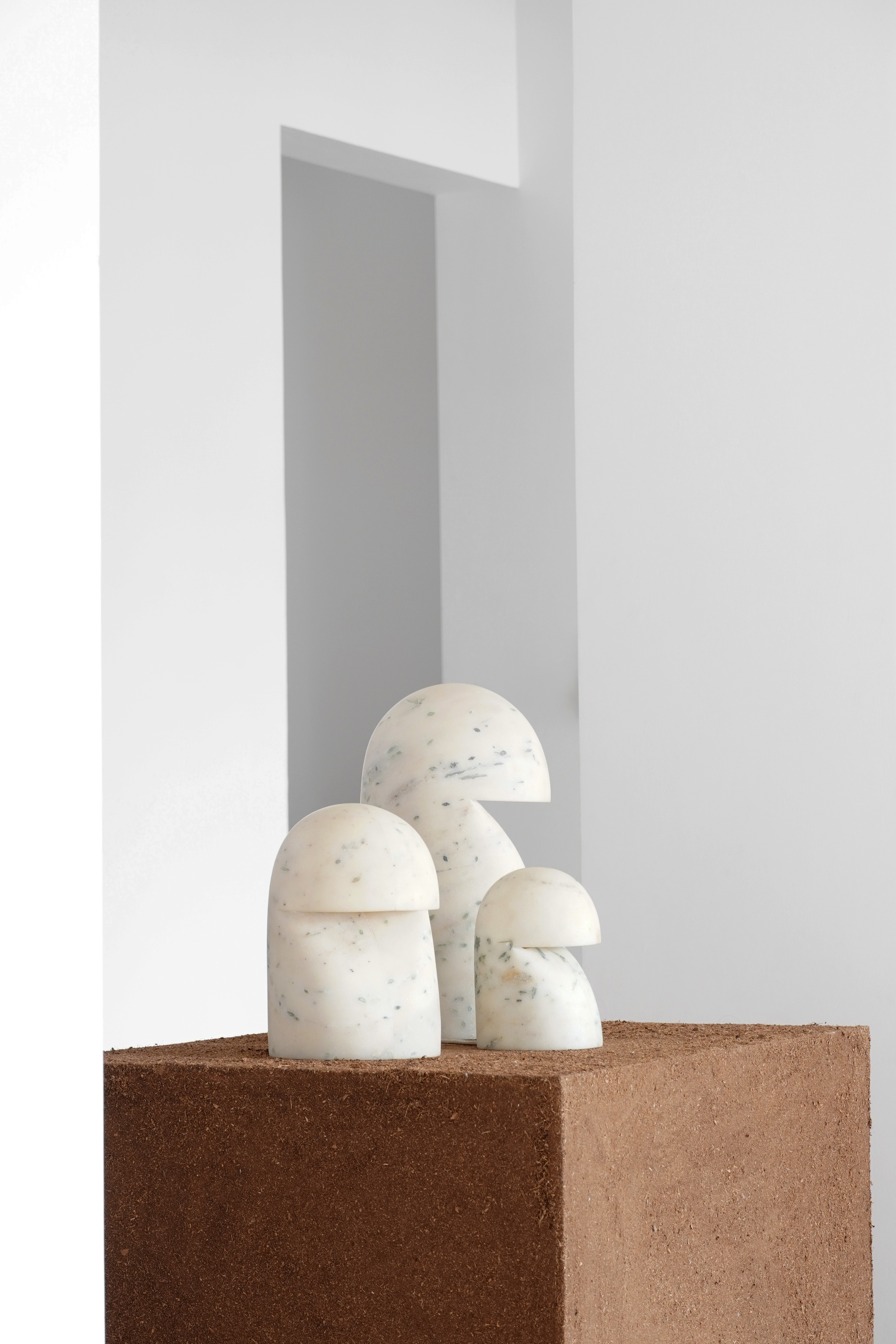
‘Bow’ stone lights by Florence Louisy, hand-carved in Indian Pista marble
Plunging into the gallery’s adventure comes spontaneously: ‘I am personally excited about the aesthetics of what cultural fusion looks like. The idea for Æquō emerged as I was developing pieces for my own home with Florence Louisy, a French designer who graduated from the Netherlands-based Design Academy Eindhoven, then collaborated with the Campana Brothers, and is now the creative director of Æquō, sharing her life between Paris and Mumbai.’
Louisy’s work was the focus for ‘Raw’, the first exhibition at Æquō. Jindal Handa explains that it ‘owes its title to a term rooted in the Latin word crudus, which loosely translates to “uncooked”. In a design context, however, “Raw” nods toward how the materials in question remain unprocessed, untouched or left in their roughest form.’
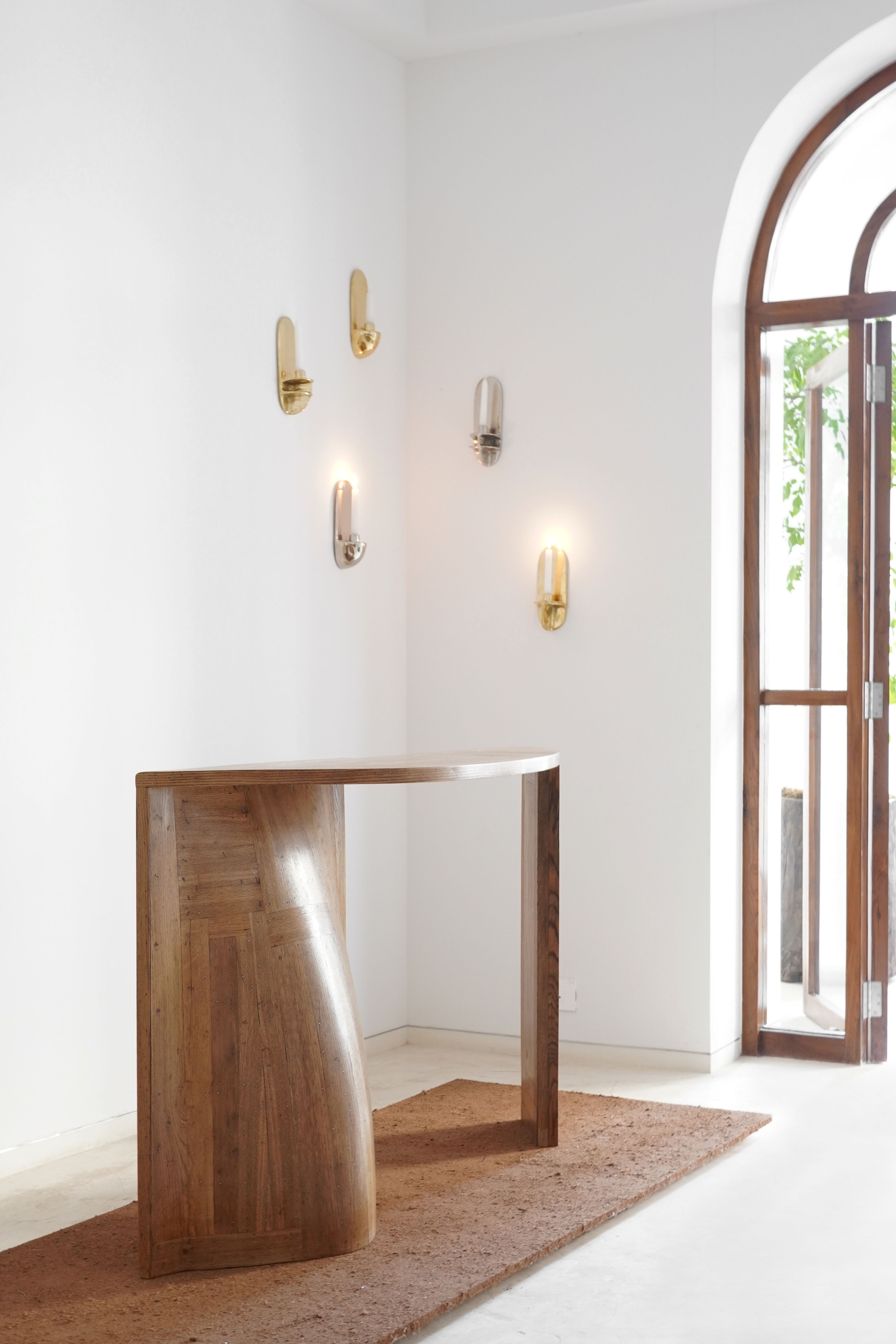
‘Tavit’ cande holders on the wall, by Florence Louisy, in chrome-plated brass and bronze
Louisy created eight collections for the gallery’s opening; all pieces seem permeated with special stories to tell, besides maintaining the ‘beauty and depth of materials almost closest to their natural state’, Jindal Handa adds. The gallery space (designed by French architect Ivan Oddos) is sleek and inviting, a kind of white canvas where the creatives invited could express themselves freely. ‘We’re the first collectible design gallery in India,’ claims Jindal Handa, ‘and the ambition for Æquō is to be world-class in everything we do. I want the gallery to be nomadic and nimble, showing in unusual destinations around the world as well as design fairs. We’re not defined by the precedent of any system.’
Wallpaper* Newsletter
Receive our daily digest of inspiration, escapism and design stories from around the world direct to your inbox.
Makers, designers and materials plus Jindal Handa’s great network comprise the powerful engine behind the gallery. Æquō is helping to create the market for collectible design in India, but also creating an entirely new market globally for fine Indian artisan techniques.
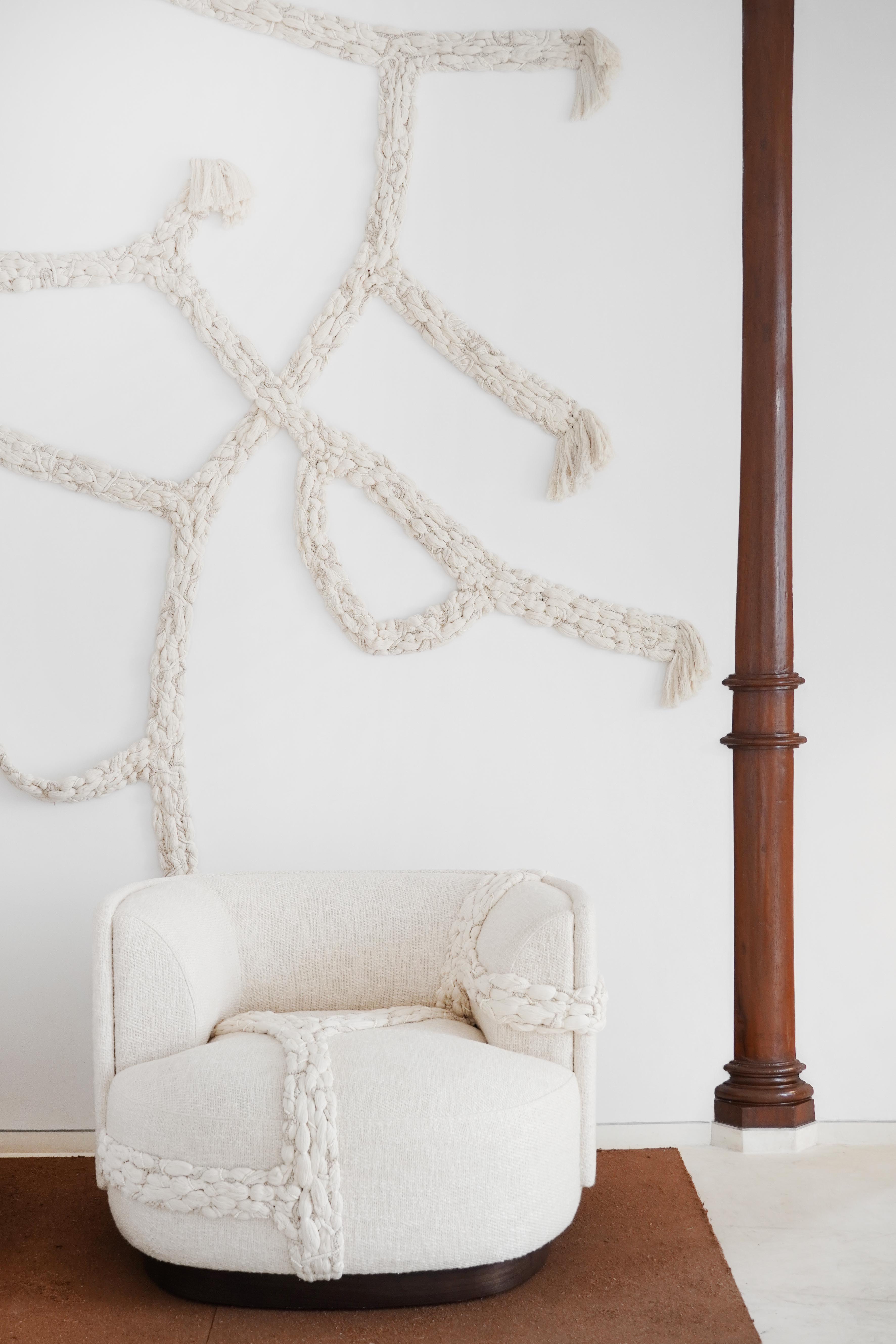
‘Ilia’ armchair by Florence Louisy, in wood and cotton
For the gallery’s first anniversary, Jindal Handa is showing a series of screens made using the bidri silver inlay technique, which originates in Bidar. ‘The scale is exceptional – usually this is a craft you only see in small objects,’ she observes. ‘They’ve been made by the master craftsman Mohammad Abdul Rauf and designed by Florence Louisy, with the silver lines in the form of illustrations by [artist and designer] Boris Brucher. They’re masterpieces of contemporary design and collaboration – really exemplary of the pieces we want to create and commission in the future.’
Jundal Handa has a pretty solid idea of herself; when asked to describe her approach to what she does, she replies: ‘I’m curious. If someone drops a name that I don’t know and sounds interesting, I’ll find out more. I’m fast. I might work in a creative industry but I’m from a business family. We make things happen. And I like to evolve; the more I see, the more honed my taste becomes. And I’m careful to surround myself with objects that bring me pleasure. Architecture and interiors bring me particular joy. But there is more to life than perfect aesthetics. I have a family, I enjoy seeing street life in Bombay. I’m grounded.’
Æquō, Devidas Mansion, Unit N° 11, 1st Floor, B K Boman Behram Marg, Mumbai, Maharashtra 400001, India. Opening Hours: 11am-7pm Monday / 11am-4pm Tuesday
The gallery's second collection will be ‘Cédric Courtin: Living Archive’, a study of leather craftsmanship in collaboration with the Pondicherry-based designer.
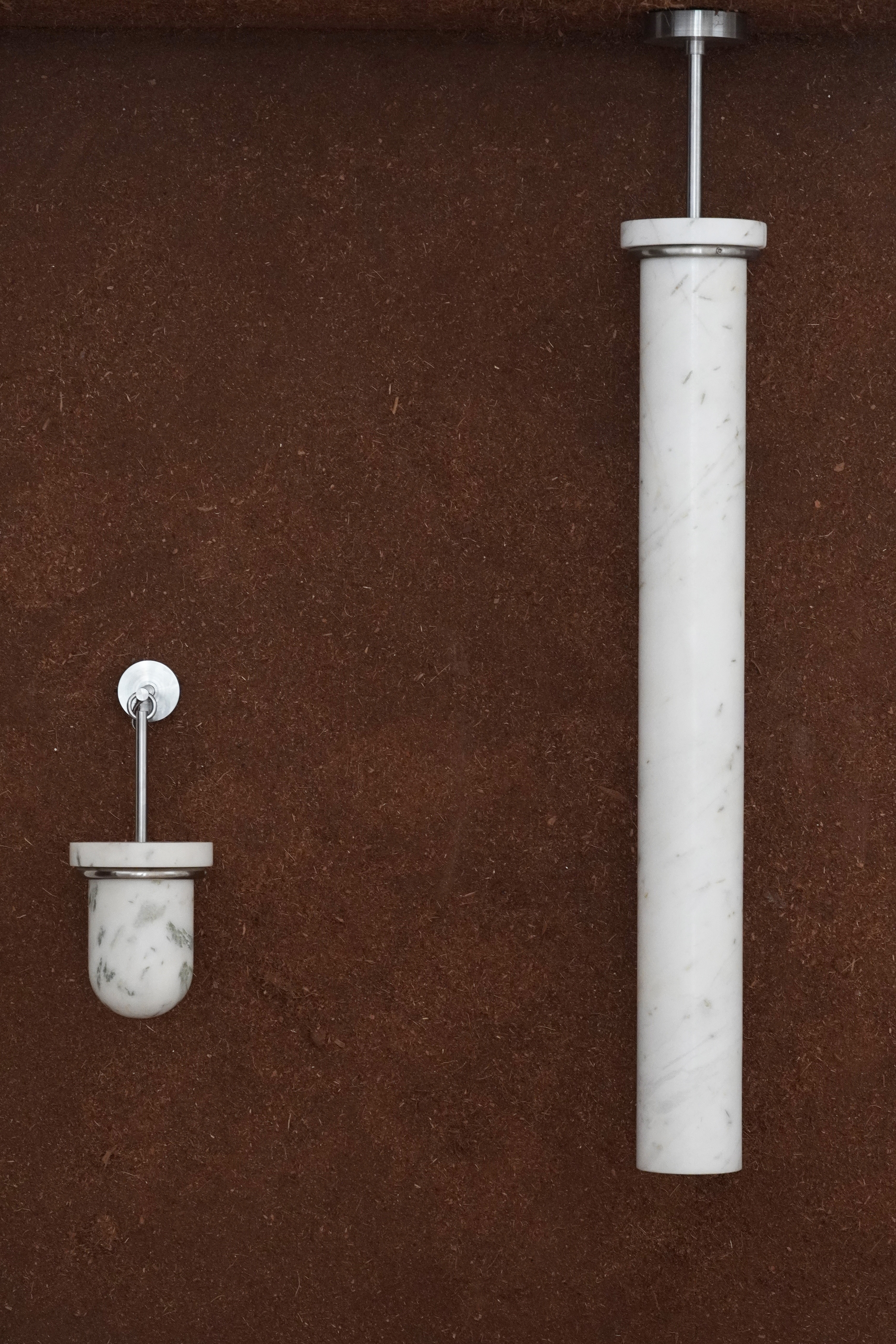
‘Pista’ lighting by Florence Louisy in turned Indian Pista marble
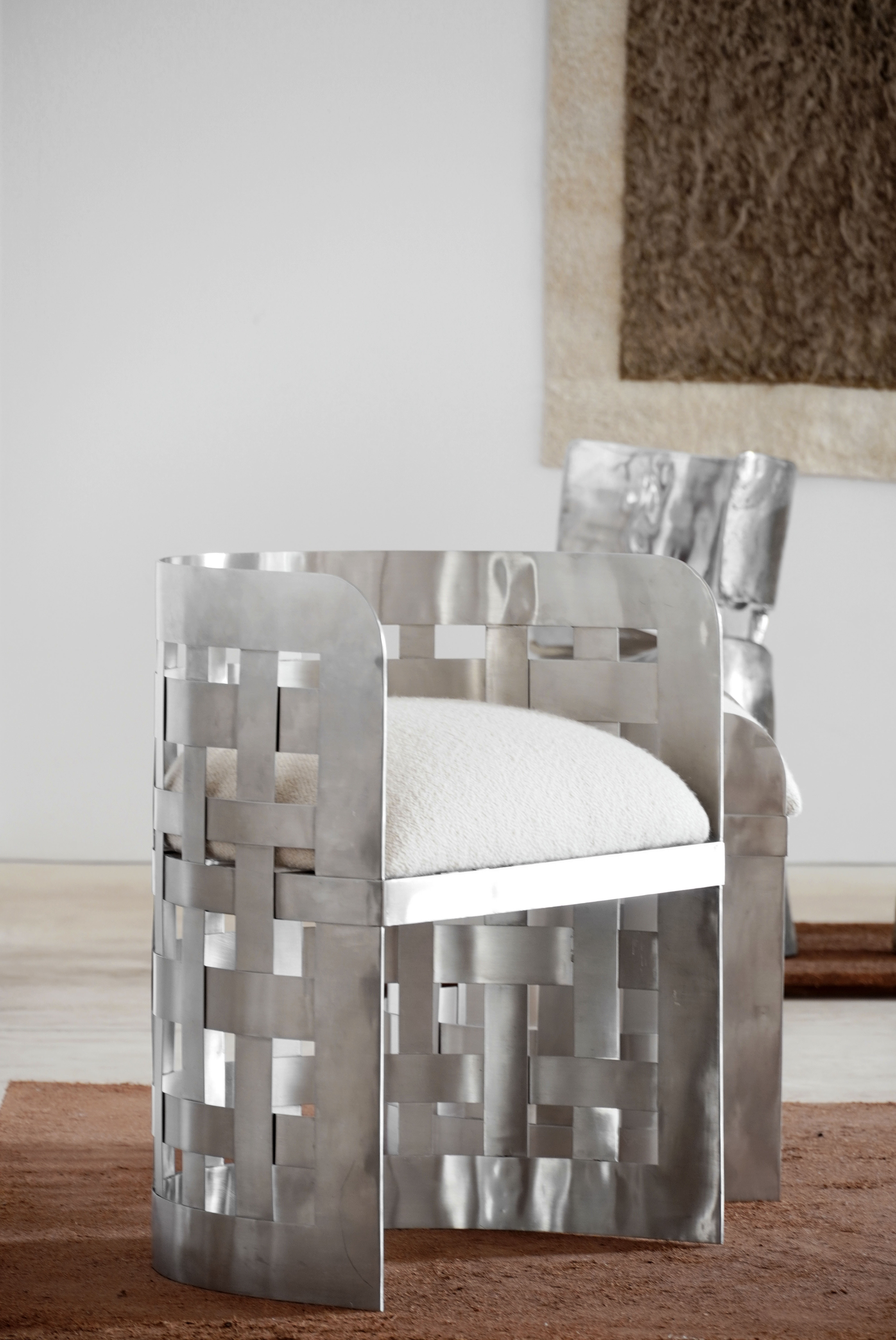
Florency Louisy, ‘Raw’ exhibition at Æquō gallery
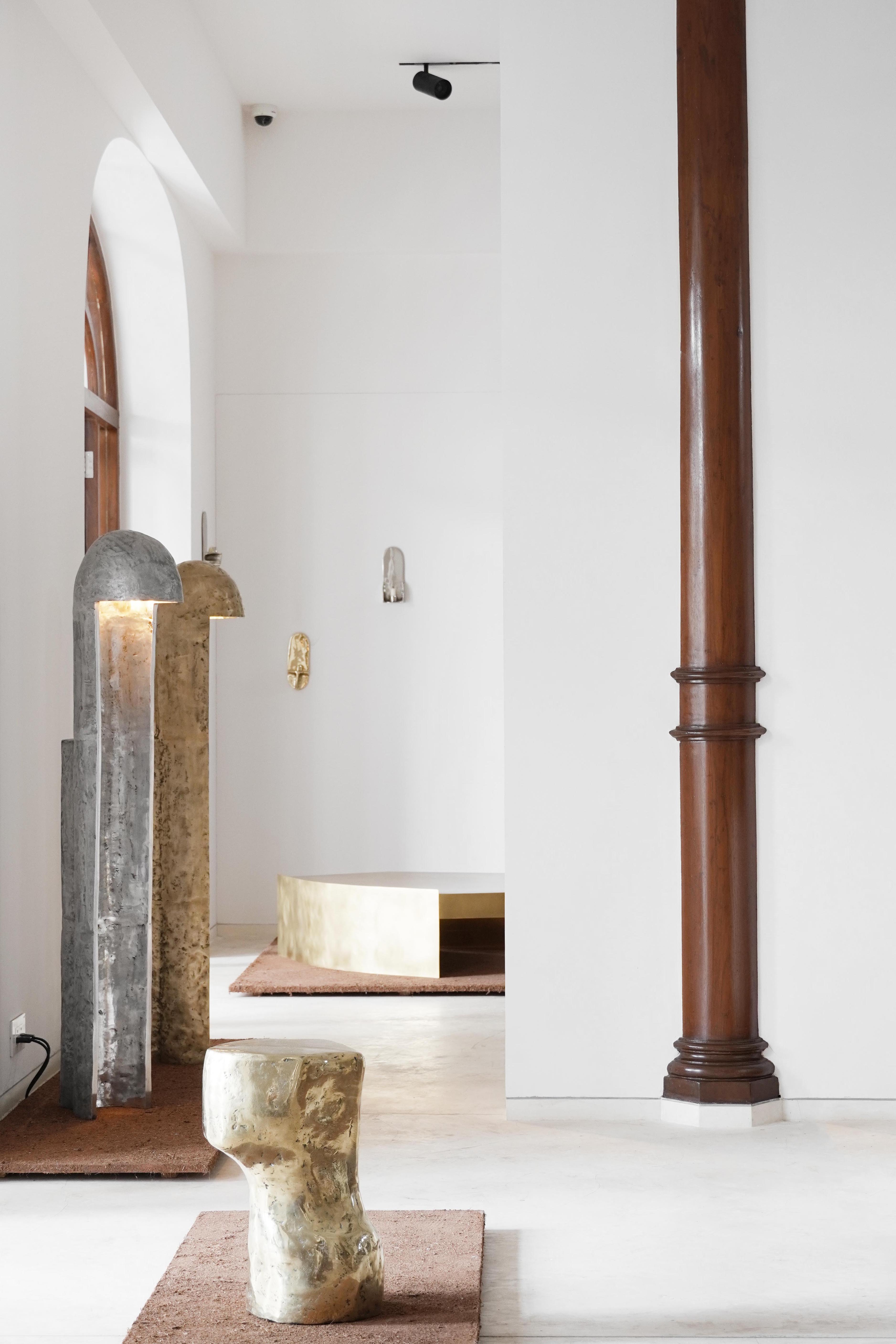
Florency Louisy, ‘Raw’ exhibition at Æquō gallery
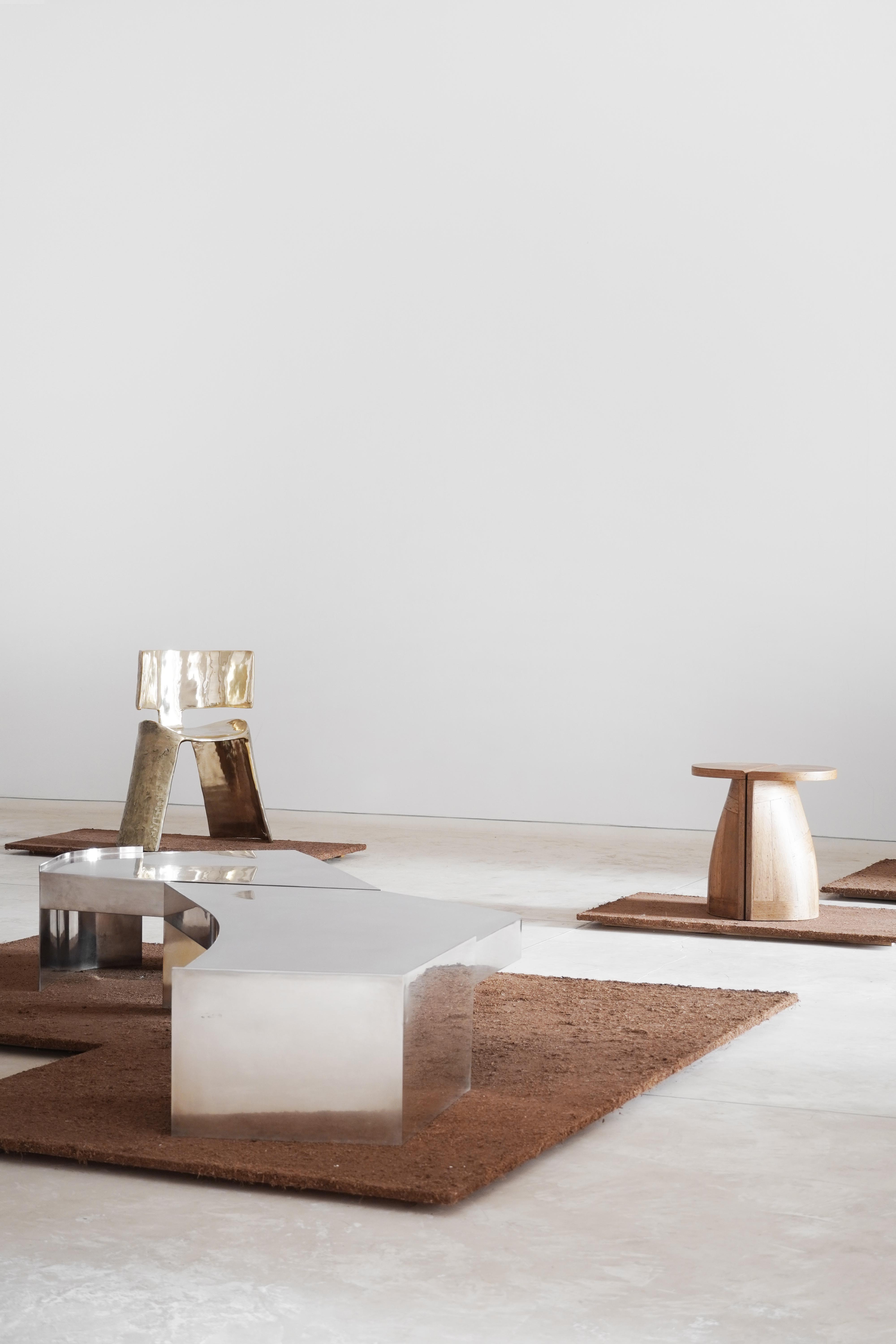
Florency Louisy, ‘Raw’ exhibition at Æquō gallery
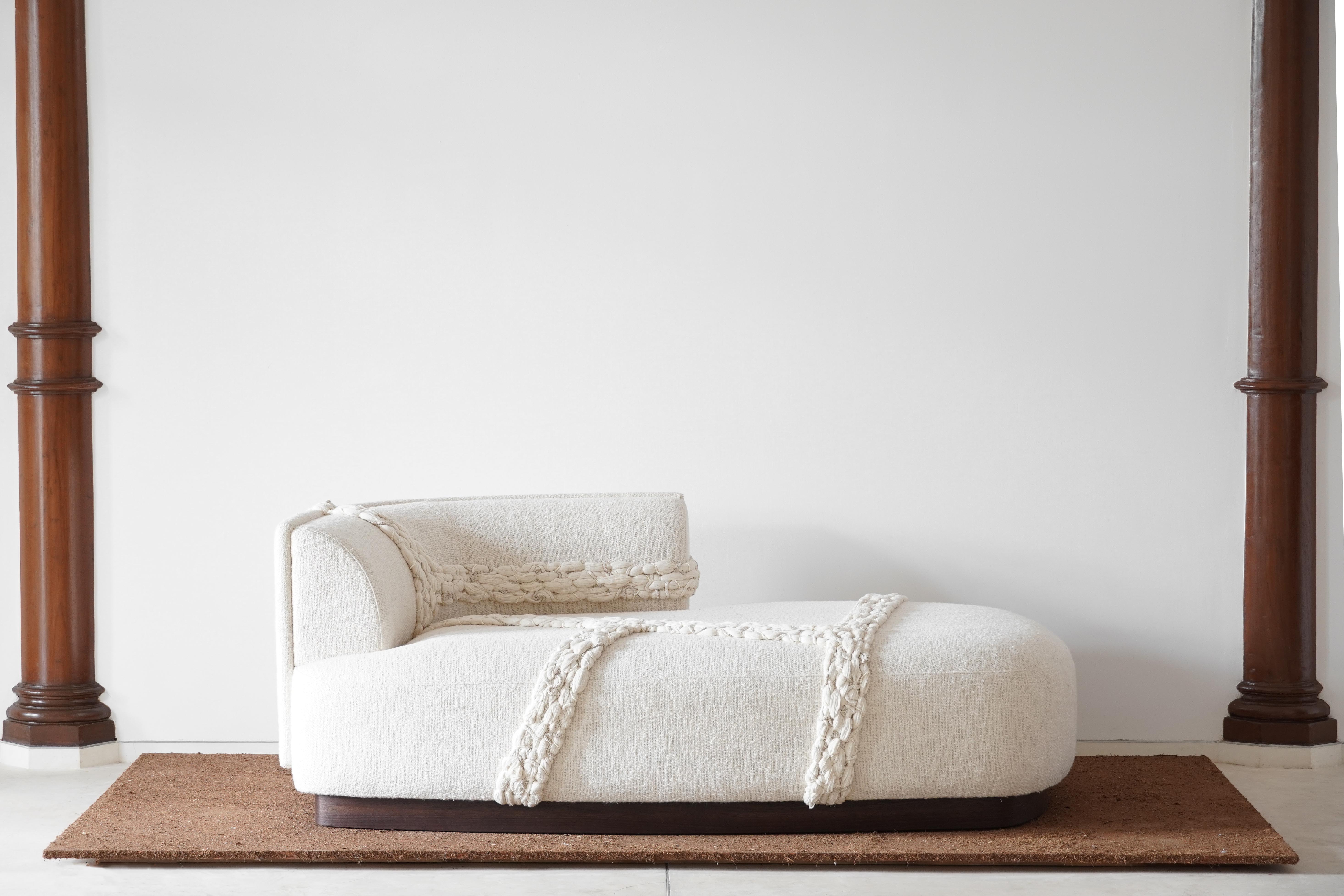
Florency Louisy, ‘Raw’ exhibition at Æquō gallery
Maria Cristina Didero is an independent design curator, consultant and author, who has contributed to many publications over the years. Didero has consulted for companies such as Vitra, Fritz Hansen, Lexus, Fendi, Louis Vuitton, Valextra among others. Based in Milan, she works internationally, curating exhibitions for institutions: some of her most recent projects include Nendo: The Space in Between and The Conversation Show at the Holon Design Museum, Israel; FUN HOUSE by Snarkitecture at National Building Museum, Washington D.C.; SuperDesign a project about Italian radical design, NY; Vegan Design, or the Art of Reduction by Erez Nevi and The Fish and The Crowd by Carlo Massoud, Milan. In April 2022 she curated a Mathieu Lehanneur exhibition at the Triennale in Milan called The Inventory of Life, while in July she debuted a project at the MK&G in Hamburg titled Ask Me if I Believe in the Future, alongside a series of ongoing collaborations. She was appointed 2022 Curatorial Director of Design Miami/. She is currently preparing two projects for Milan Design Week 2023.
-
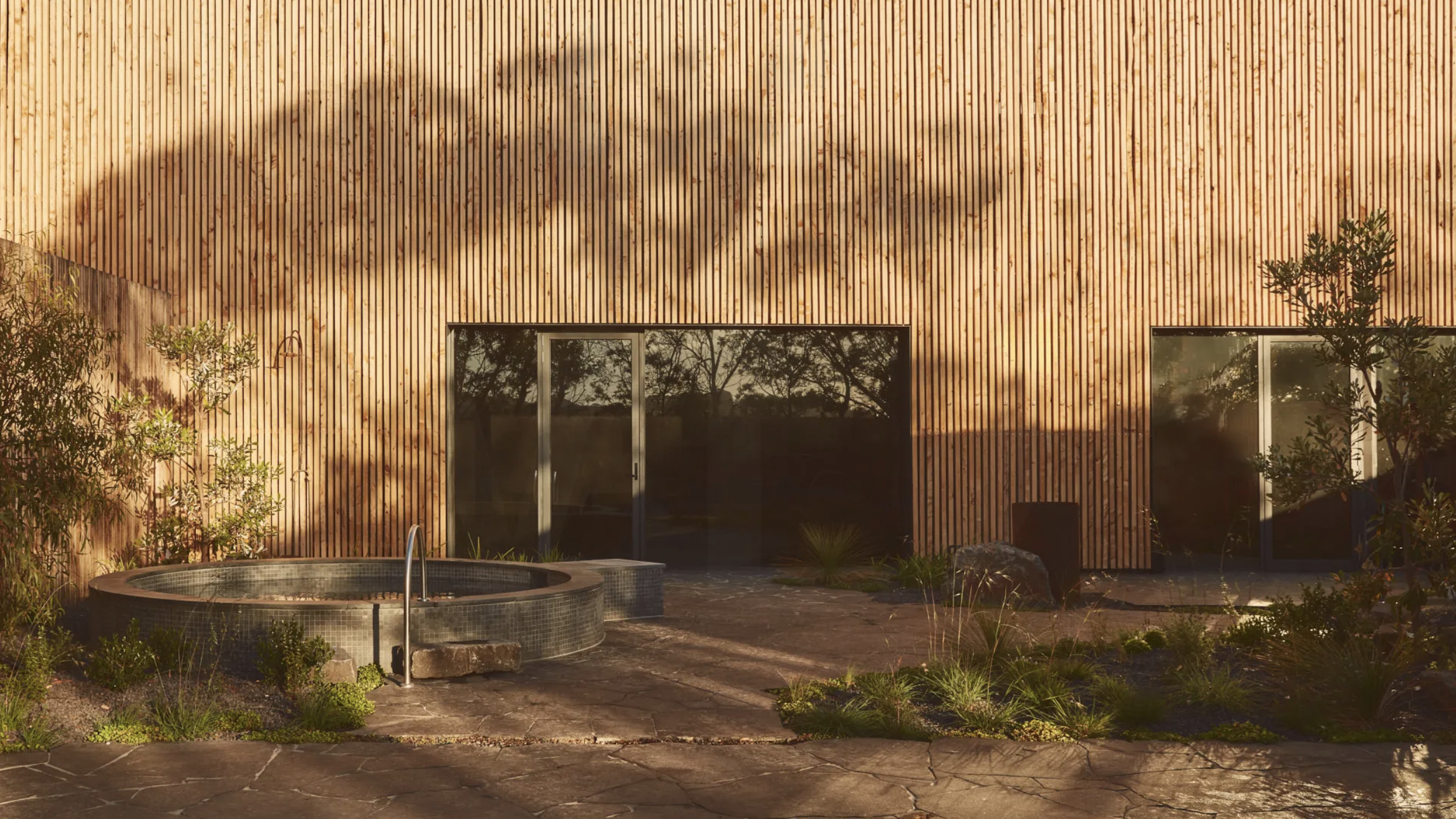 Australian bathhouse ‘About Time’ bridges softness and brutalism
Australian bathhouse ‘About Time’ bridges softness and brutalism‘About Time’, an Australian bathhouse designed by Goss Studio, balances brutalist architecture and the softness of natural patina in a Japanese-inspired wellness hub
By Ellie Stathaki
-
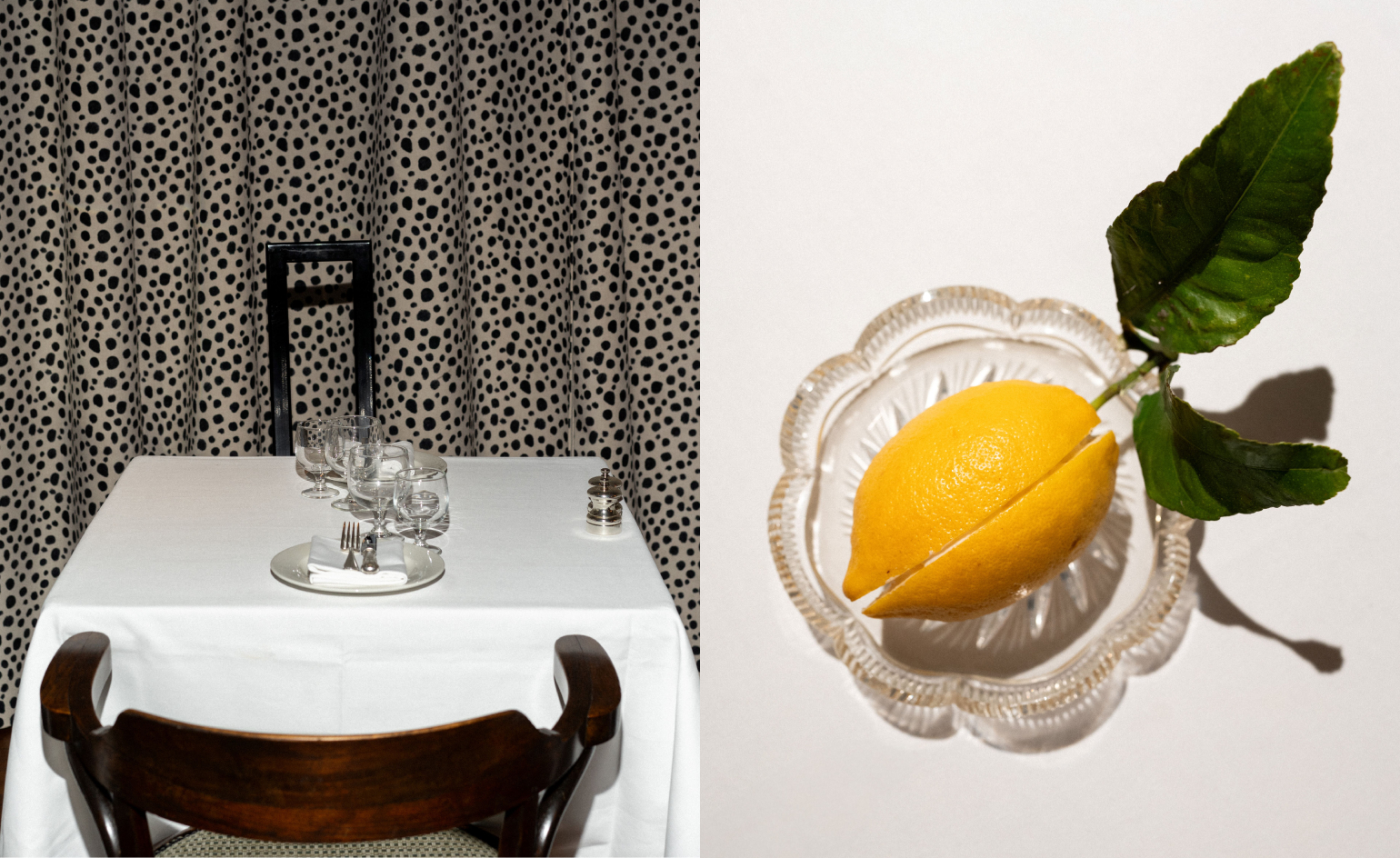 Marylebone restaurant Nina turns up the volume on Italian dining
Marylebone restaurant Nina turns up the volume on Italian diningAt Nina, don’t expect a view of the Amalfi Coast. Do expect pasta, leopard print and industrial chic
By Sofia de la Cruz
-
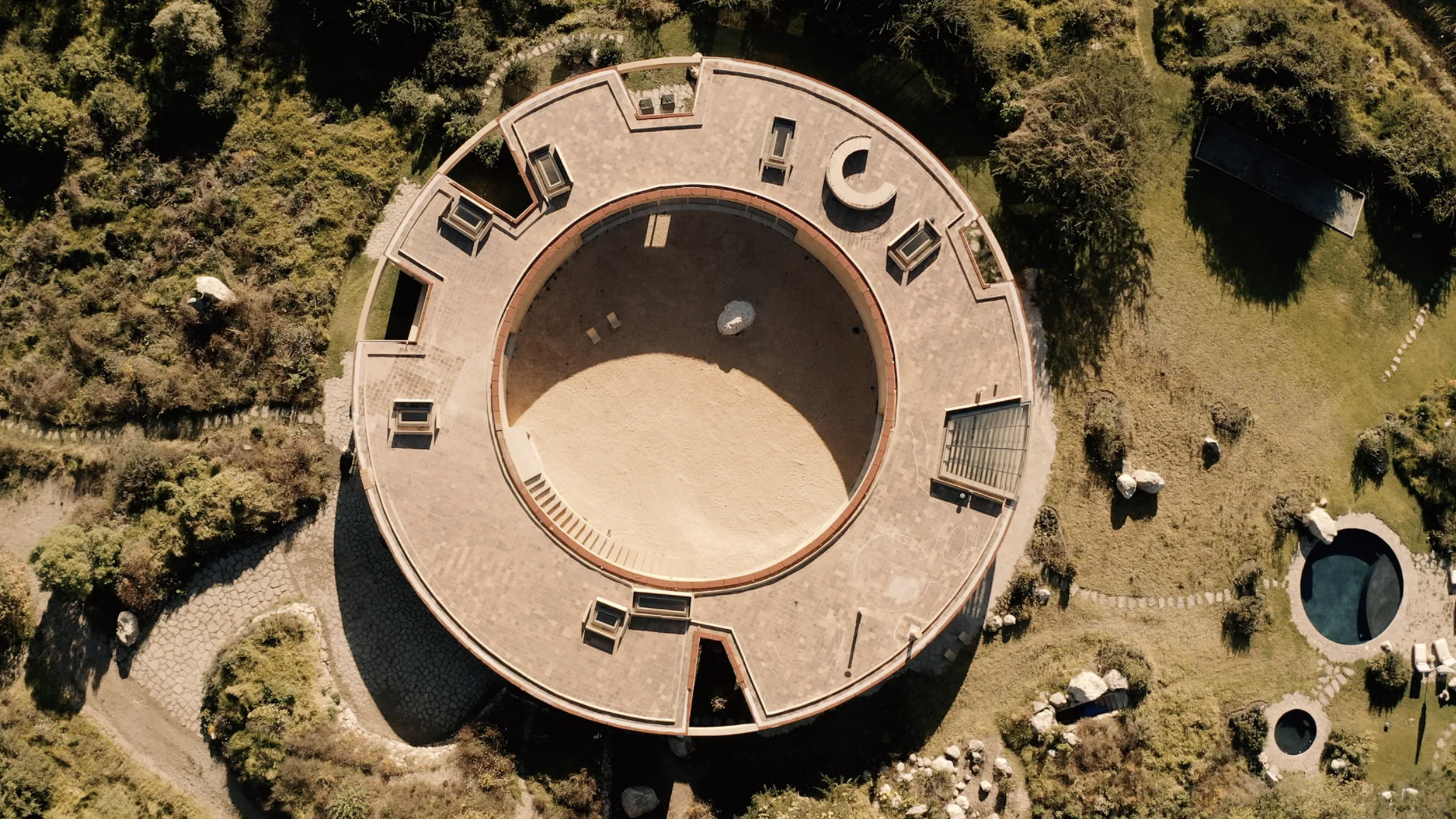 Tour the wonderful homes of ‘Casa Mexicana’, an ode to residential architecture in Mexico
Tour the wonderful homes of ‘Casa Mexicana’, an ode to residential architecture in Mexico‘Casa Mexicana’ is a new book celebrating the country’s residential architecture, highlighting its influence across the world
By Ellie Stathaki
-
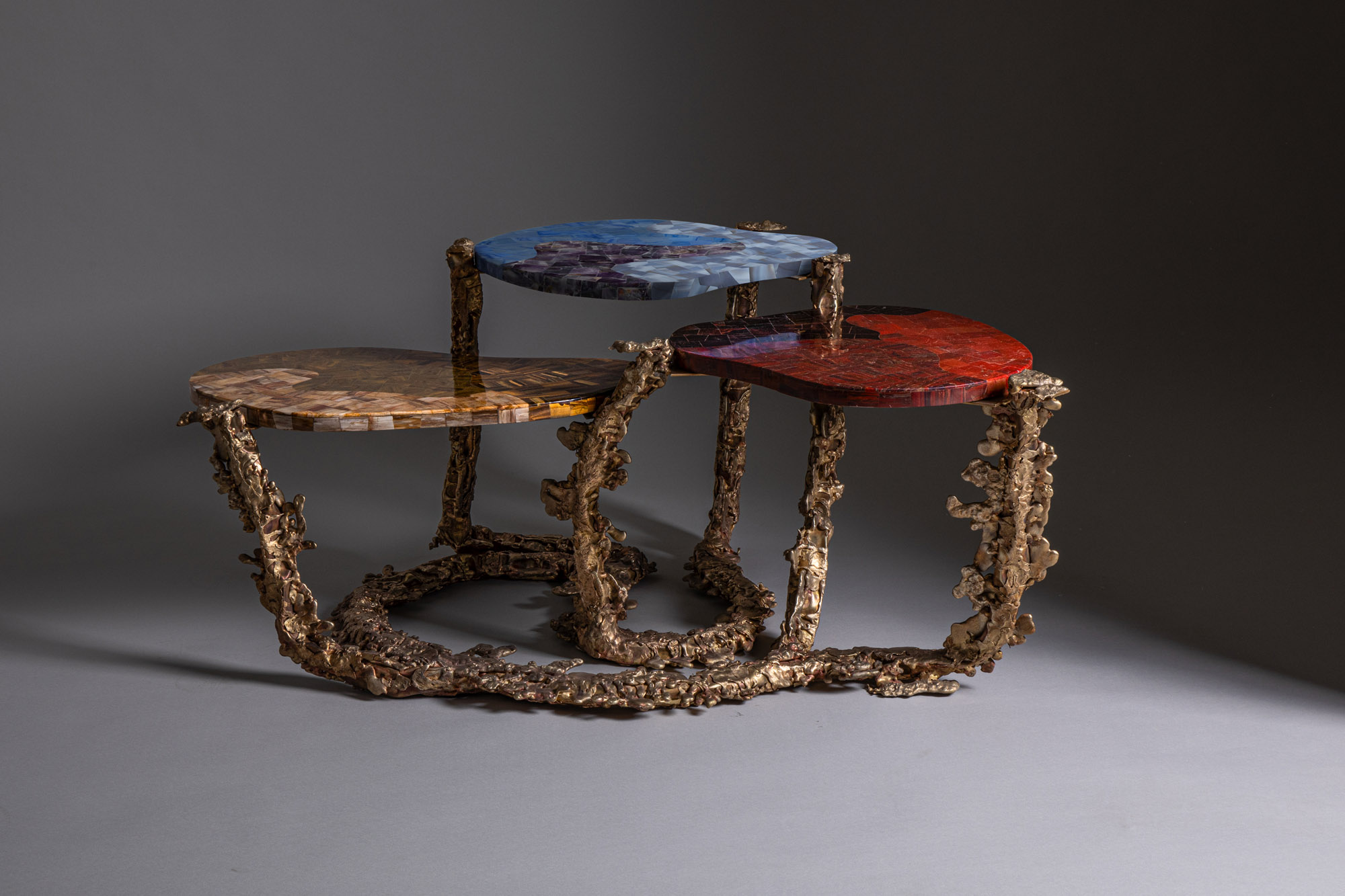 Inside the Shakti Design Residency, taking Indian craftsmanship to Alcova 2025
Inside the Shakti Design Residency, taking Indian craftsmanship to Alcova 2025The new initiative pairs emerging talents with some of India’s most prestigious ateliers, resulting in intricately crafted designs, as seen at Alcova 2025 in Milan
By Henrietta Thompson
-
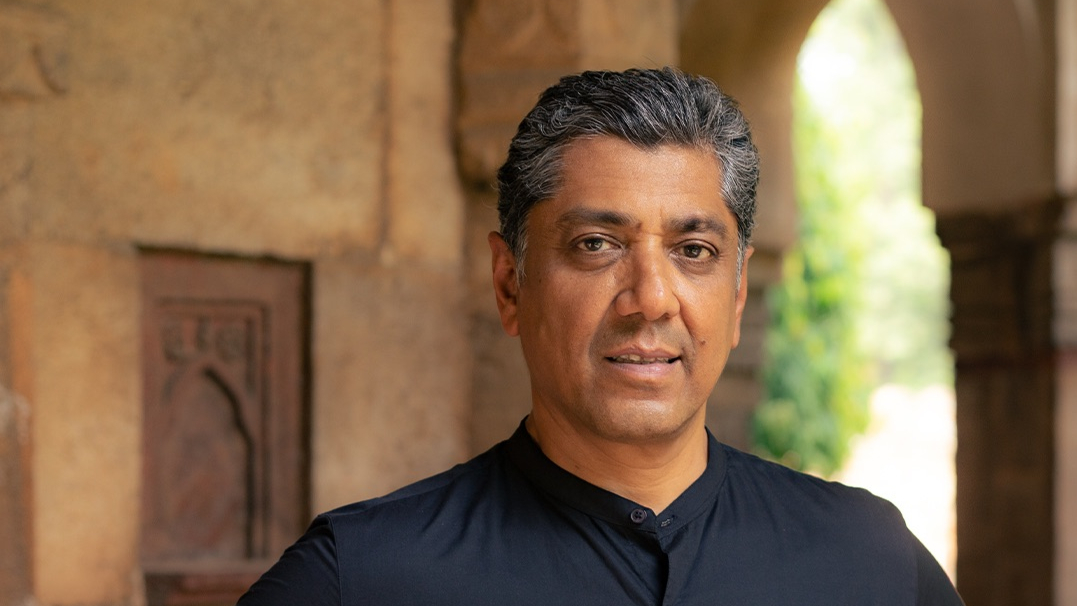 'Now, the world is waking up': Vikram Goyal on bringing Indian craftsmanship to the global stage
'Now, the world is waking up': Vikram Goyal on bringing Indian craftsmanship to the global stageWe talk to Indian craft entrepreneur Vikram Goyal about redefining heritage, innovating with repoussé, and putting Indian craftsmanship on the global map.
By Ali Morris
-
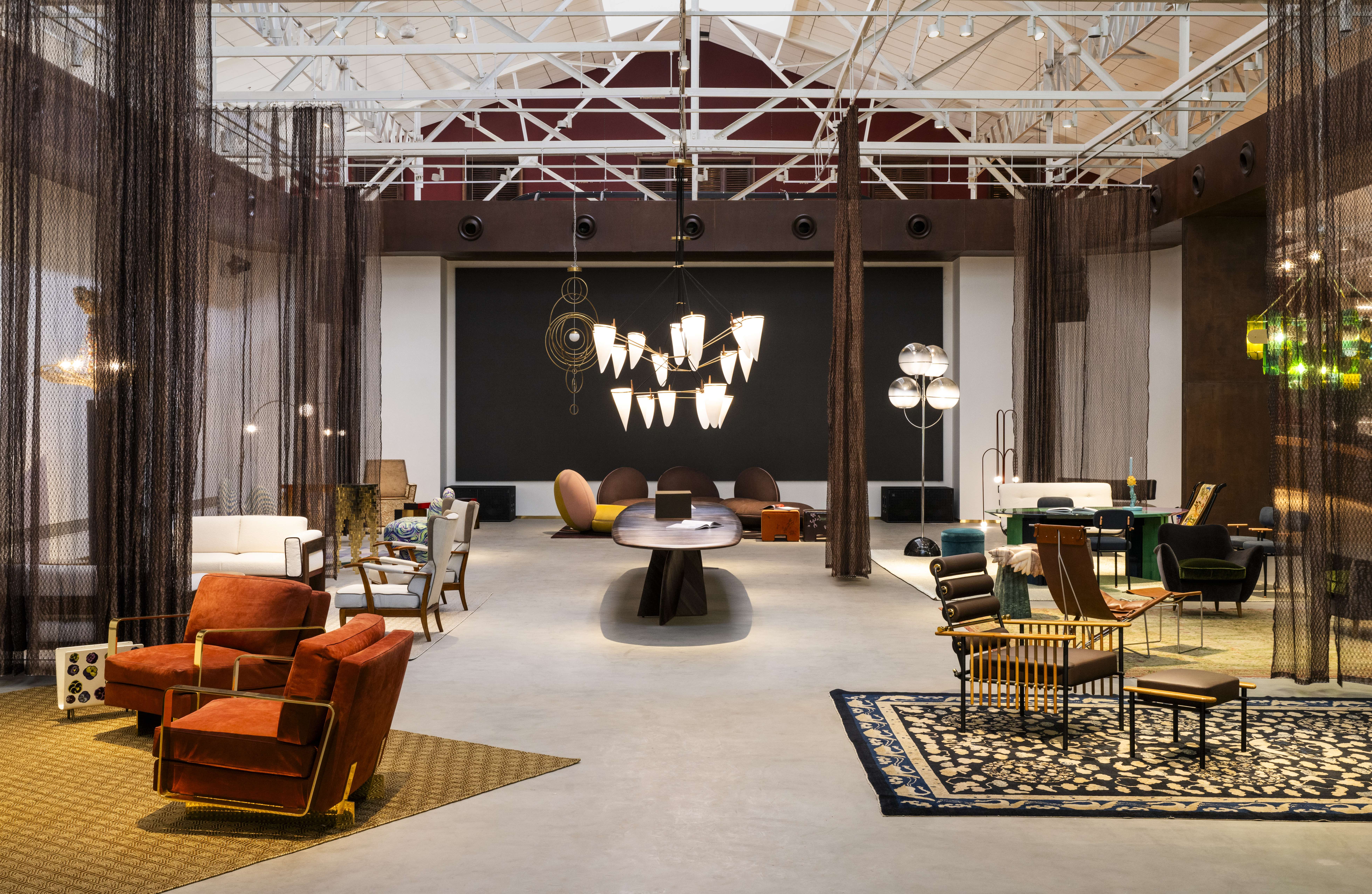 ‘The Indian market has come of age’: Inside Nilaya Anthology, India’s new design destination
‘The Indian market has come of age’: Inside Nilaya Anthology, India’s new design destinationNilaya Anthology – a global design showroom with a distinctly Indian perspective – has opened in Mumbai
By Ali Morris
-
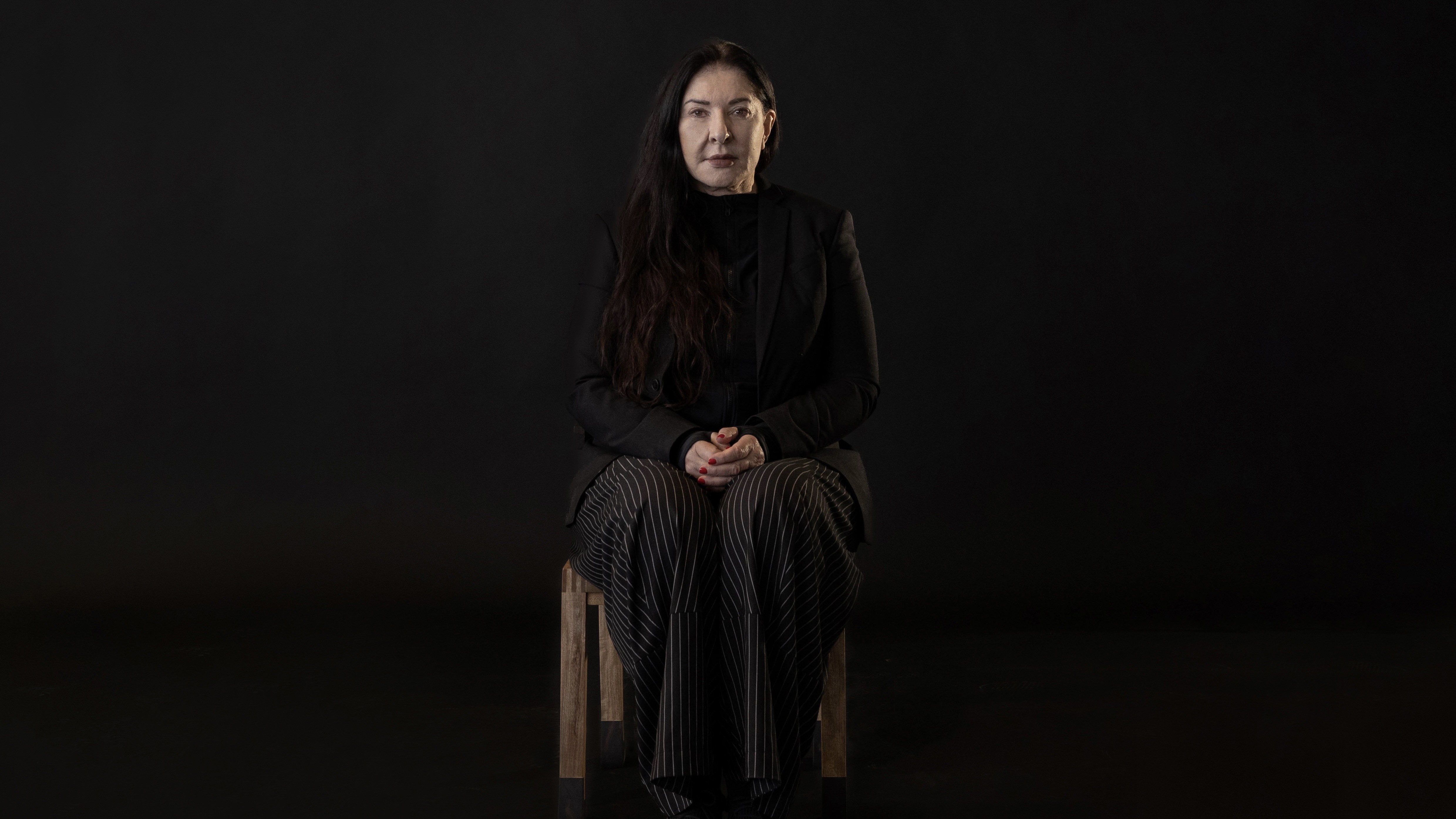 ‘Nothing just because it’s beautiful’: Performance artist Marina Abramović on turning her hand to furniture design
‘Nothing just because it’s beautiful’: Performance artist Marina Abramović on turning her hand to furniture designMarina Abramović has no qualms about describing her segue into design as a ‘domestication’. But, argues the ‘grandmother of performance art’ as she unveils a collection of chairs, something doesn’t have to be provocative to be meaningful
By Anna Solomon
-
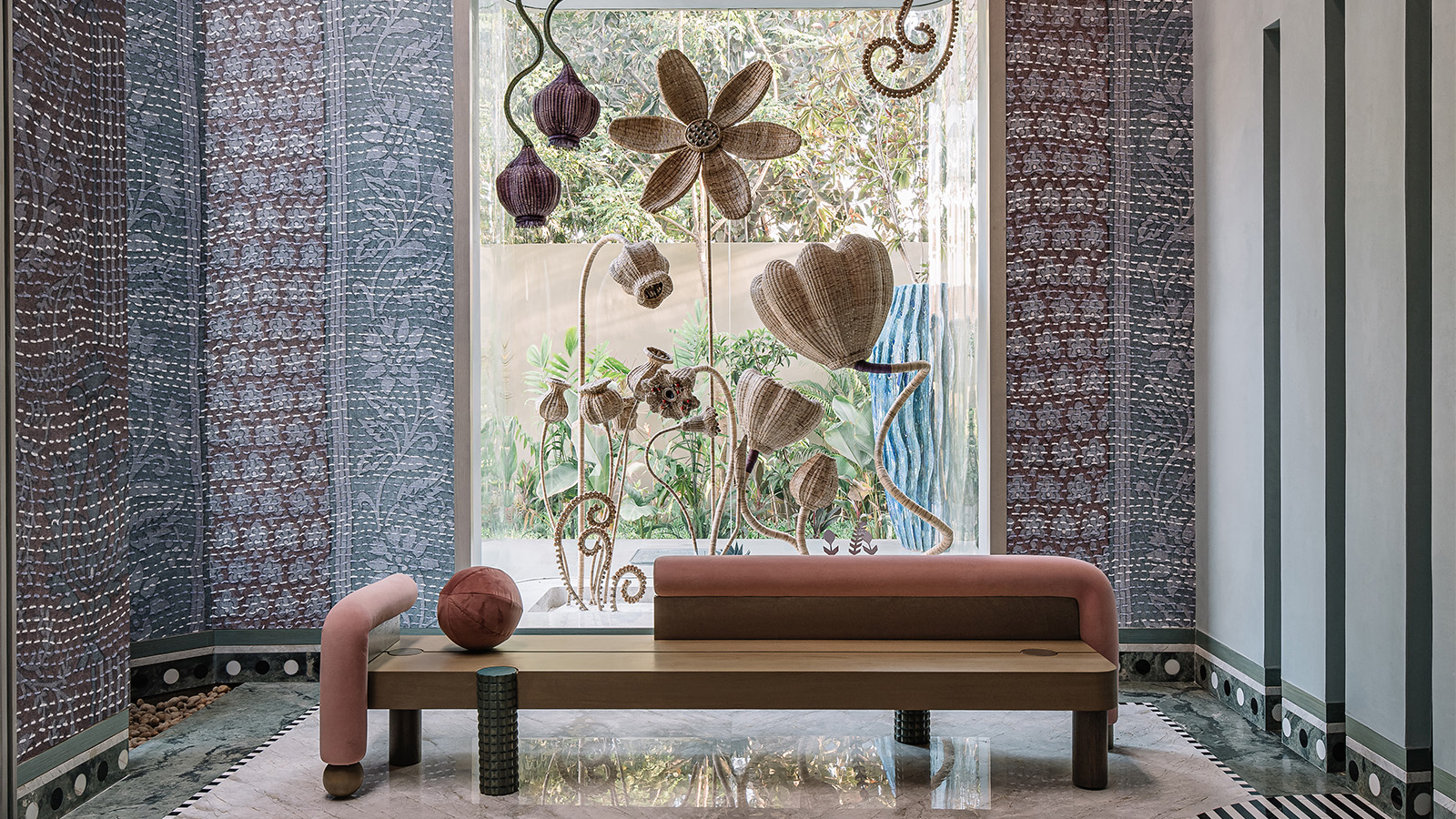 This ethereal Chennai home is a celebration of Indian craft and culture
This ethereal Chennai home is a celebration of Indian craft and cultureDesigned by Multitude of Sins, this Chennai home is an artisanal trove of rich texture and secret garden-like design. Wallpaper* speaks with design principal Smita Thomas on crafting the space
By Tianna Williams
-
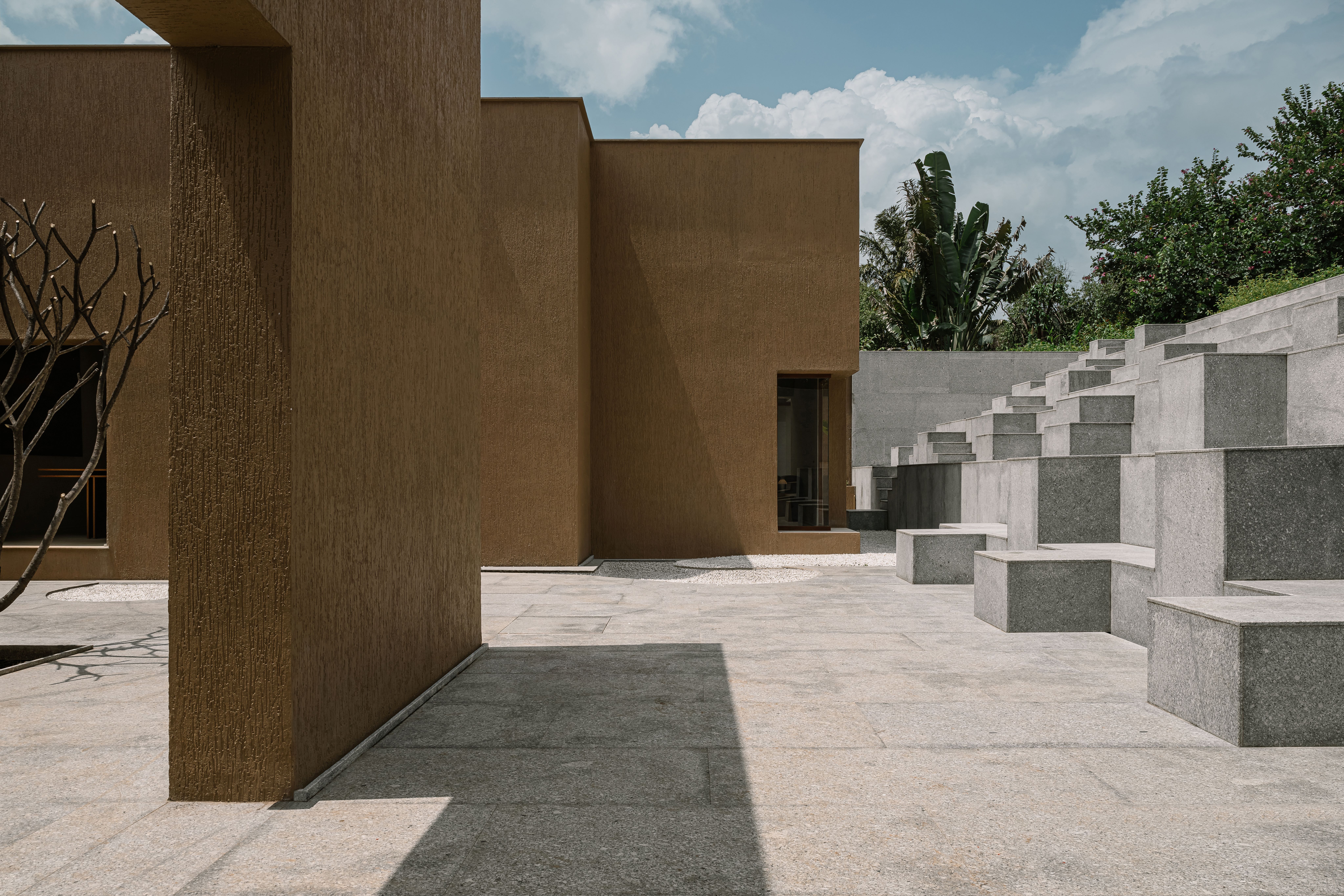 Indian furniture brand SĀR Studio is putting Pune on the map with a new flagship and residency programme
Indian furniture brand SĀR Studio is putting Pune on the map with a new flagship and residency programmeSĀR Residence, a multi-use concept space, acts as an extension of the Indian furniture brand
By Laura May Todd
-
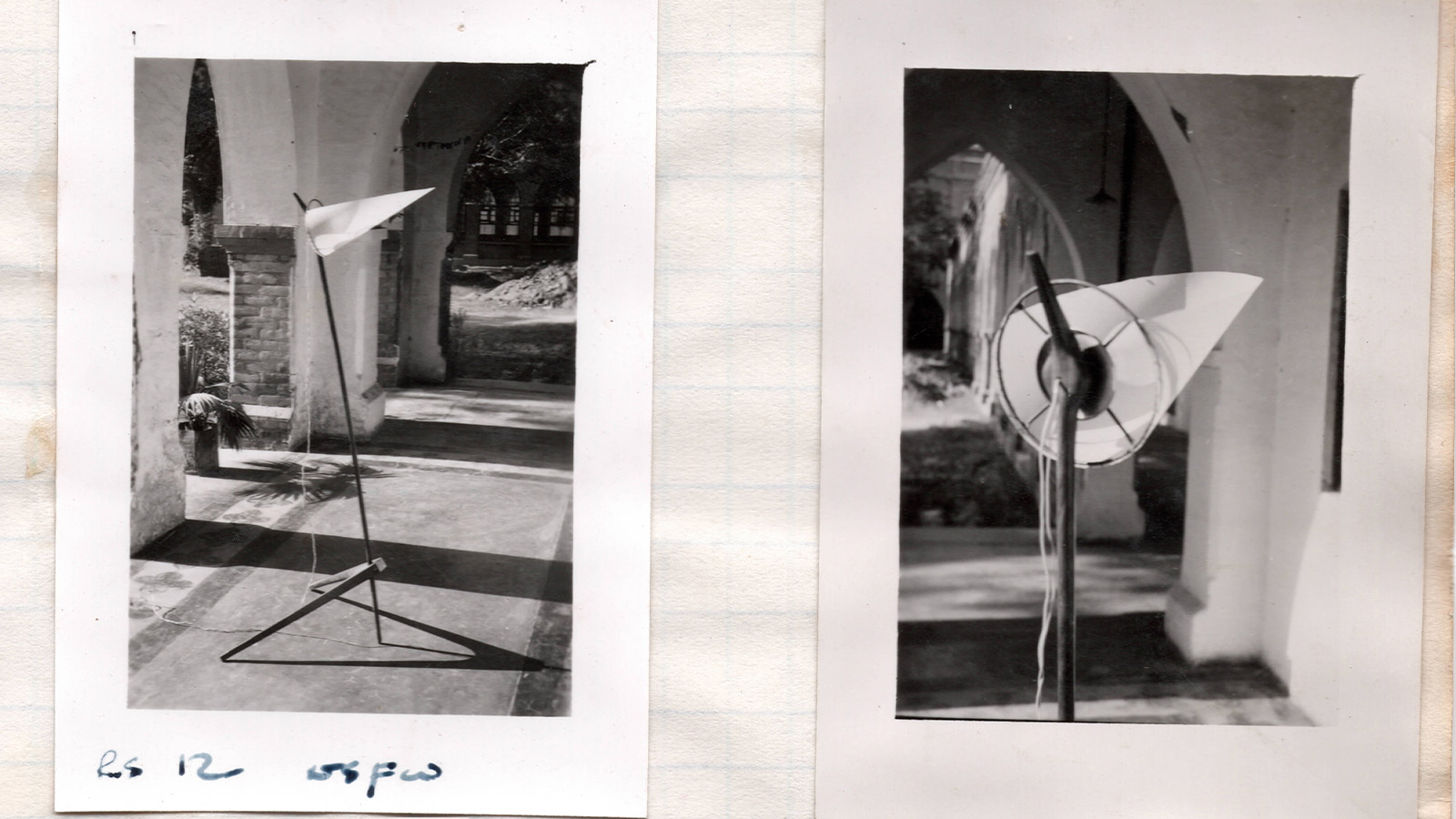 Pierre Jeanneret and Edward Armitage: tracing design inspiration in Chandigarh
Pierre Jeanneret and Edward Armitage: tracing design inspiration in ChandigarhBritish designer Joe Armitage set off for Chandigarh, India, to trace his grandfather Edward’s footsteps and recreate a photograph of the latter’s ‘Armitage’ lamp. A trail of intrigue around its inspiration lay in wait, as he reveals
By Joe Armitage
-
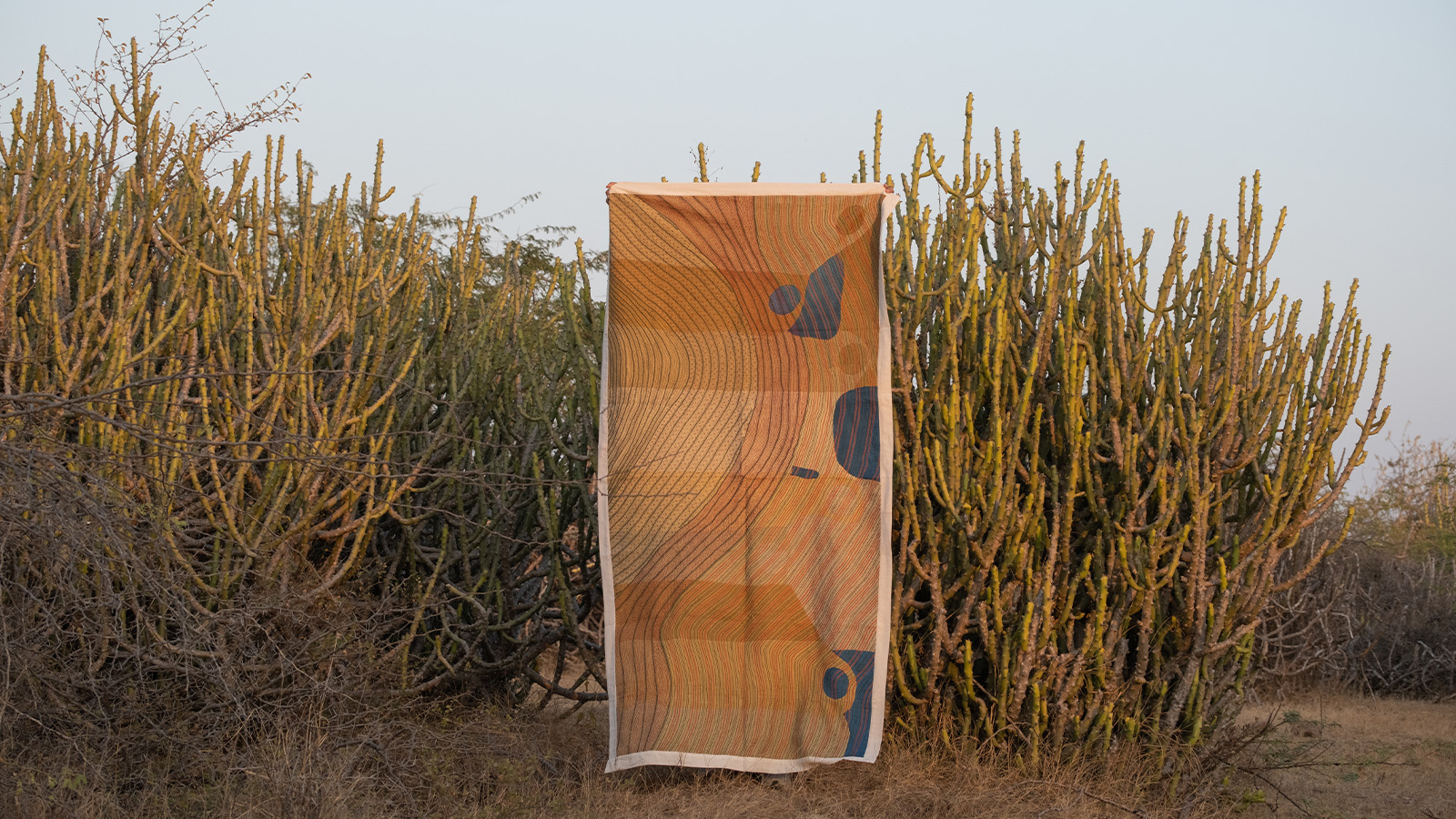 It’s the first-ever Design Mumbai: here’s what to see
It’s the first-ever Design Mumbai: here’s what to seeAt least 100 international and Indian brands will showcase at Design Mumbai, referencing India’s rich and storied heritage of craftsmanship and highly specialised craft clusters (6-9 November 2024)
By Giovanna Dunmall